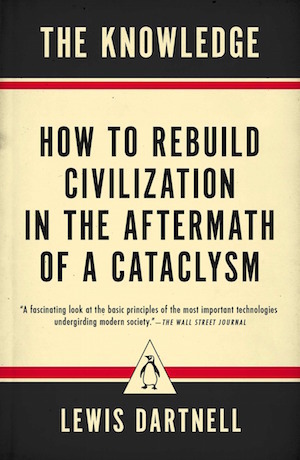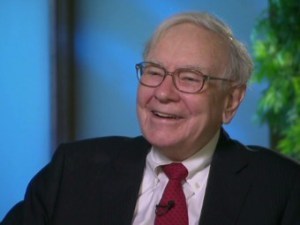Stewart Brand's Blog, page 42
April 15, 2015
Paul Saffo Seminar Media
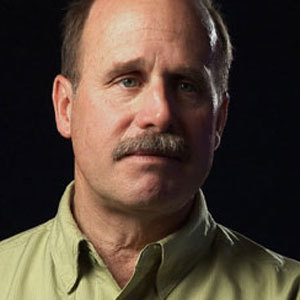 This lecture was presented as part of The Long Now Foundation’s monthly Seminars About Long-term Thinking.
This lecture was presented as part of The Long Now Foundation’s monthly Seminars About Long-term Thinking.
The Creator Economy
Tuesday March 31, 02015 – San Francisco
Video is up on the Saffo Seminar page.
*********************
Audio is up on the Saffo Seminar page, or you can subscribe to our podcast.
*********************
The Creator Economy – a summary by Stewart Brand
Media innovations drive economic shifts, Saffo began. “We invent new technology and then use it to reinvent ourselves.”
The Industrial/producer Economy: At the beginning of the 20th century the leading scarcity was stuff, and so manufacture was systematized. By 1914 one of Ford’s workers could buy a Model T car with four month’s salary. Production efficiency won the Second World War for the allies. In 1944 the US was producing 8 aircraft carriers a month, a plane every five minutes, and 50 merchant ships a day. The process became so efficient that its success ended the dominance of that economy. That always happens. “Every new abundance creates an adjacent scarcity.“
The Consumer Economy The new scarcity was desire. 1958 brought the first credit card. The CEOs of leading companies shifted from heads of production to heads of marketing. Container ships doubled global trade.
The Creator Economy: In 1971 Herbert Simon predicted, “A wealth of information creates a poverty of attention and a need to allocate that attention efficiently.” The new scarcity turned out to be engagement. The mass media television channels that had dominated the Consumer Economy were overwhelmed by personal media–YouTube, eBay, Facebook, Wikipedia, Twitter, Google, Etsy. Hollywood was overwhelmed by video games. (The blockbuster movie “Avatar“ opened in 2009 with a $73 million weekend. The previous month, the game “Call of Duty: Modern Warfare 2” sold $310 million in 24 hours.)
Mass participation became the new normal. Stuff is cheap; status comes from creation. Value is created by engagement—from Wikipedia entries to Google queries to Mechanical Turk services to Airbnb to Uber to Kaggle analyses. Burning Man sets the standard of “no spectators.” Makers insist that “If you can’t open it, you don’t own it.”
Saffo advised recalling four warnings for revolutionaries. 1) There are winners and losers 2) Don’t confuse early results with long-term outcomes. 3) Successful insurgents become over-powerful incumbents 4) Technologies of freedom become technologies of control.
If we want privacy now, we have to pay extra for it. As with our smart phones, we will subscribe to self-driving cars, not own them. With our every move tracked, we are like radio-collared bears. Our jobs are being atomized, with ever more parts taken over by robots. We trade freedom for convenience.
Over the 30 or so years remaining in the Creator Economy, Saffo figures that we will redefine freedom in terms of interdependence, and he closed with Richard Brautigan’s poem about a “cybernetic ecology” where we “are all watched over by machines of loving grace.”
Subscribe to our Seminar email list for updates and summaries.

April 7, 2015
Paul Saffo Seminar Media
 This lecture was presented as part of The Long Now Foundation’s monthly Seminars About Long-term Thinking.
This lecture was presented as part of The Long Now Foundation’s monthly Seminars About Long-term Thinking.
The Creator Economy
Tuesday March 31, 02015 – San Francisco
Audio is up on the Saffo Seminar page, or you can subscribe to our podcast.
*********************
The Creator Economy – a summary by Stewart Brand
Media innovations drive economic shifts, Saffo began. “We invent new technology and then use it to reinvent ourselves.”
The Industrial/producer Economy: At the beginning of the 20th century the leading scarcity was stuff, and so manufacture was systematized. By 1914 one of Ford’s workers could buy a Model T car with four month’s salary. Production efficiency won the Second World War for the allies. In 1944 the US was producing 8 aircraft carriers a month, a plane every five minutes, and 50 merchant ships a day. The process became so efficient that its success ended the dominance of that economy. That always happens. “Every new abundance creates an adjacent scarcity.“
The Consumer Economy The new scarcity was desire. 1958 brought the first credit card. The CEOs of leading companies shifted from heads of production to heads of marketing. Container ships doubled global trade.
The Creator Economy: In 1971 Herbert Simon predicted, “A wealth of information creates a poverty of attention and a need to allocate that attention efficiently.” The new scarcity turned out to be engagement. The mass media television channels that had dominated the Consumer Economy were overwhelmed by personal media–YouTube, eBay, Facebook, Wikipedia, Twitter, Google, Etsy. Hollywood was overwhelmed by video games. (The blockbuster movie “Avatar“ opened in 2009 with a $73 million weekend. The previous month, the game “Call of Duty: Modern Warfare 2” sold $310 million in 24 hours.)
Mass participation became the new normal. Stuff is cheap; status comes from creation. Value is created by engagement—from Wikipedia entries to Google queries to Mechanical Turk services to Airbnb to Uber to Kaggle analyses. Burning Man sets the standard of “no spectators.” Makers insist that “If you can’t open it, you don’t own it.”
Saffo advised recalling four warnings for revolutionaries. 1) There are winners and losers 2) Don’t confuse early results with long-term outcomes. 3) Successful insurgents become over-powerful incumbents 4) Technologies of freedom become technologies of control.
If we want privacy now, we have to pay extra for it. As with our smart phones, we will subscribe to self-driving cars, not own them. With our every move tracked, we are like radio-collared bears. Our jobs are being atomized, with ever more parts taken over by robots. We trade freedom for convenience.
Over the 30 or so years remaining in the Creator Economy, Saffo figures that we will redefine freedom in terms of interdependence, and he closed with Richard Brautigan’s poem about a “cybernetic ecology” where we “are all watched over by machines of loving grace.”
Subscribe to our Seminar email list for updates and summaries.

April 6, 2015
Centre for the Study of Existential Risk needs researchers
Former Long Now speaker Sir Martin Rees just wrote in to let us know that the new Centre for the Study of Existential Risk (At the University of Cambridge) is recruiting four postdoctoral researchers to work on the study of extreme risks arising from technological advances. Specific projects include: responsible innovation in transformative technologies; horizon-scanning and foresight; ethics and evaluation of extreme technological risks, and policy and governance challenges associated with emerging technologies.
They also have the flexibility to hire one or more postdoctoral researchers to work on additional projects relevant to the Centre’s broad aims, which include impacts and safety in artificial intelligence and synthetic biology, biosecurity, extreme tail climate change, geoengineering, and catastrophic biodiversity loss. They welcome proposals from a range of fields.
The deadline for applications is April 24th, and details can be found here:
http://www.jobs.cam.ac.uk/job/6554/
April 2, 2015
1,000 Year Old Recipe Effectively Kills MRSA (An Antibiotic-Resistant Superbug)
A 1,000 year old treatment for eye infections, recreated from a recipe recorded in the 9th Century, killed up to 90% of MRSA bacteria, suggesting a new path of research against antibiotic-resistant strains of bacteria. The treatment is made up of onion, garlic, wine, and cow bile, and was recorded in Bald’s Leechbook, an early medical textbook that has been preserved by The British Library.
March 30, 2015
Upcoming Events at The Interval with Stanford’s Center for Advanced Study in the Behavioral Sciences

D. Fox Harrell, Ph.D. — photo by Bryce Vickmark
Long Now is pleased to announce a new collaboration with the Center for Advanced Study in the Behavioral Sciences (CASBS) at Stanford University. Beginning in May, CASBS Fellows will appear regularly in our Conversations at The Interval series. The first two Fellows to speak will be D. Fox Harrell (MIT) on May 5, 02015 and Valentina Bosetti (Università Bocconi) on June 23. All upcoming Interval talks are listed here.
For over sixty years the Center has been a national and international locus for transformative thinking and research on the most important issues in social science. Their residential fellowship program attracts the finest scholars from psychology, sociology, economics, political science, anthropology, history, philosophy, linguistics, and related disciplines.
CASBS alumni include such renowned scholars as Kingsley Davis, Ruth Bader Ginsburg, and Wallace Stegner. CASBS Fellows have been recognized through the years with an impressive list of honors including 22 Nobel Prizes, 14 Pulitzers, 44 MacArthur Fellowships, and 20 National Book Awards, to mention only a few. Four previous Long Now SALT speakers have been Fellows at CASBS during their careers: Daniel Kahneman, Stephen Lansing, Paul Romer, and Philip Tetlock. Other notable alums include Henry Louis Gates Jr., Steven D. Levitt, Donald Norman, Norman Ornstein, and Edward Tufte.
D. Fox Harrell‘s talk is entitled Coding Ourselves/Coding Others: Imagining Social Identities Through Computing. In his talk at The Interval on May 5 he will discuss his studies of social networking, gaming, and virtual worlds; he’ll show examples of systems developed by his research group that are designed to enable creative expression, cultural analysis, and social empowerment.
Dr. Harrell is a tenured Associate Professor of Digital Media in the Comparative Media Studies Program and the Computer Science and Artificial Intelligence Laboratory at MIT. He founded and directs the MIT Imagination, Computation, and Expression Laboratory (ICE Lab).
Valentina Bosetti speaks at The Interval on June 23, 02015. Her talk entitled “Life’s a Great Balancing Act” will include her work on climate change risk and uncertainty, how individuals perceive them, and how they affect the climate change policy making process. She was recently awarded a European Research Council grant with the objective of substantially advancing the way we conceptualize, model and frame climate change policy making under uncertainty.

Valentina Bosetti, Ph.D. — photo TEDxMilano
Dr. Bosetti is associate professor at Bocconi University where she teaches environmental and climate change economics. She was a lead author of the IPCC Fifth Assessment Report (AR5) about the state of scientific, technical and socio-economic knowledge on climate change. She is also a senior researcher at Fondazione Enrico Mattei and Euro-Mediterranean Center on Climate Change.
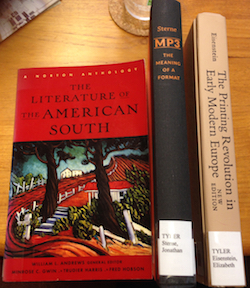
Books from the Tyler Collection
In addition to talks by these and other CASBS Fellows, the Center’s director Margaret Levi will recommend a list of books for our Manual for Civilization. Her list will include selections from The Ralph W. Tyler Collection. The collection contains over 1,800 books written by CASBS Fellows since the program began in 01954. All the books in the collection were conceived, initiated or completed during the author’s fellowship.

photos by Mikl Em, unless otherwise noted
Tickets for Interval talks go on sale a few weeks beforehand. Long Now members and Interval donors always have the first chance to buy tickets for these events.
March 21, 2015
Lewis Dartnell at The Interval: How to Rebuild Our World From Scratch on March 24 02015
Tuesday, March 24, 02015
Lewis Dartnell
(University of Leicester / European Space Agency)
The Knowledge: Rebuilding Our World From Scratch
at The Interval
Tickets on sale now
advanced tickets suggested
This Tuesday in San Francisco Long Now welcomes British astrobiologist Lewis Dartnell to our Conversations at The Interval series to discuss his latest book The Knowledge. This book is a guide to rebuilding key features of civilization like agriculture, communication, transportation and medicine in the aftermath of a global catastrophe.
The Knowledge will be on sale at the talk, and Lewis will sign books and chat more with the audience afterwards
Far from a doomsday prediction, Dartnell’s book reveals the potential resiliency of humanity if we approach challenges with an awareness of the natural sciences and understanding of how contemporary technology works. The Knowledge brings a lot of this fundamentally useful information into one place; and it’s bibliography points to deeper resources for a wide range of subjects. Lewis has previously shared his expertise with Long Now for our Manual for Civilization project.
“The Knowledge is a fascinating look at the basic principles of the most important technologies undergirding modern society… full of optimism about human ingenuity”
— The Wall Street Journal
The videos below show two examples of tips you’ll find in The Knowledge. The first draws on insights into how our world works today (manufacturing) to reveal an ideal solution. There are many ways to open a can, but this is probably the best. The second is more sophisticated: how to use a scavenged battery to drive electrolysis and isolate useful elements like oxygen and chlorine. That requires a better understanding of chemistry than you will get studying TV plotlines, but it’s mostly high school level science. And it hints that the best solutions actually create more tools to help us more rapidly recover.
Often Dartnell’s advice relies on a combination of scientific knowledge and scavenged resources. Both industrial detritus (a golf cart battery) and common household items (steel wool) are useful in resuscitating features of modern society. This kind of ingenuity is familiar in pop culture: television shows in particular from MacGyver to Breaking Bad feature protagonists whose expertise with the periodic table and access to a junkyard or various consumer packaged goods help save the day time after time. It’s the same principle: when the stakes are high we are capable of ingenuity, even if we aren’t geniuses.
We hope you can join us for Lewis Dartnell’s talk at The Interval on March 24, 02015
March 18, 2015
Michael Shermer Seminar Tickets
The Long Now Foundation’s monthly
Seminars About Long-term Thinking
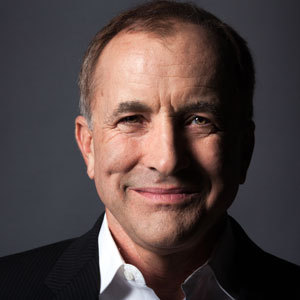
Michael Shermer presents “The Long Arc of Moral Progress”
TICKETS
Tuesday April 14, 02015 at 7:30pm SFJAZZ Center
Long Now Members can reserve 2 seats, join today! General Tickets $15
About this Seminar:
Steven Pinker writes: “Shermer has engaged the full mantle of moral progress and considered how far we have come and how much farther that arc can be bent toward truth, justice, and freedom.”
“Through copious data and compelling examples Shermer shows how the arc of the moral universe, seen from a historical vantage point, bends toward civil rights and civil liberties, the spread of liberal democracy and market economies, and the expansion of women’s rights, gay rights, and even animal rights. Never in history has such a large percentage of the world’s population enjoyed so much freedom, autonomy, and prosperity. The steadily unfolding revolution of gay marriage gives Shermer the opportunity to show how rights revolutions of many different kinds come about.“ [Steven Pinker is the author of The Better Angels of Our Nature. He gave a SALT talk on “The Decline of Violence” in 02012.]
Michael Shermer’s new book is The Moral Arc: How Science and Reason Lead Humanity toward Truth, Justice, and Freedom. His previous books include The Believing Brain and The Science of Good and Evil. He is the founder and editor-in-chief of Skeptic magazine and has a monthly column in Scientific American.
March 13, 2015
Warren Buffett maintains his lead in his $1 million Long Bet
In 02008, Warren Buffett placed a Long Bet that will take until 02017 to resolve. He predicted that for those ten years, “the S & P 500 will outperform a portfolio of funds of hedge funds, when performance is measured on a basis net of fees, costs and expenses.”
Below is a summary of how things went in the seventh year of this Bet, as published by Fortune Magazine:
Warren Buffett adds to his lead in $1 million hedge-fund bet
By Carol Loomis
Seven years into a 10-year performance wager, the Berkshire Hathaway CEO is winning easily.
Results are in for the seventh year of what’s sometimes called The Million-Dollar Bet—Warren Buffett’s 10-year wager that the S&P 500 would outperform a sampling of hedge funds—and, for now at least, it’s looking like a rout for the CEO of Berkshire Hathaway.
Under the terms of the wager, Buffett is betting (with his own money, not Berkshire’s) on the stock market performance of an S&P 500 index fund while Protégé Partners, a New York money manager, is banking on five funds of hedge funds (the names of which have never been publicly disclosed) that Protégé carefully picked at the outset. Through the seven years, Vanguard’s 500 index fund, as represented by its Admiral shares, is up 63.5%. That’s the portfolio carrying Buffett’s colors. Protégé’s five hedge funds of funds are, on the average—the marker the bet uses—up an estimated 19.6%. (The “estimated” takes into account that not all of the five funds have final figures for 2014).
A charity of the winner’s choice will receive $1 million—or more, which we’ll get to in a moment—at the bet’s end.
This was the sixth straight year that the contest has tilted in Buffett’s direction: The Admiral shares were up 13.6% in 2014 and the average gain for the funds of funds was 5.6%. Only in the first year of the bet—which began in 2008, a year that was a train wreck for both the economy and the stock market—did the funds of funds win, so to speak. They were down, on average, only 24%. The Admiral shares plummeted by 37% that year.
In Fortune (which exclusively wrote about the beginning of the bet in 2008 and has since annually made public how the bet stands), Buffett pictured himself after the 2008 tumult as a tortoise, up against a hare. Since then, Buffett has stuck to the plot of the Aesop fable and methodically moved ahead of his rival.
With only three years left in the bet, is there a scenario that would leave Protégé closing the yawning gap and winning? One scenario, maybe, and it is articulated by Ted Seides, the Protégé partner who in 2007 negotiated the bet with Buffett (after Buffett, in a speech, threw out a challenge to the hedge-fund world). Says Seides: “The odds now are that we’ll need to see a severe market contraction for our side of the ledger to stage an epic comeback.”
And he adds the deeper meaning of such a contraction. “One lesson from 2008 is that no one wins when that occurs,” says Seides.
To amend that statement only slightly, this contest will definitely have one certain winner: The charity that gets the proceeds of the bet. The odds say that will be Girls Inc. of Omaha, which Buffett designated to get the money if he emerged the victor.
The amount handed over, though, is not likely to be $1 million, because of changes that Buffett and Protégé made in the wager a couple of years ago. The original bet stipulated that each side in the bet would put up $320,000 to be invested in a zero-coupon bond that after 10 years would be worth $1 million. Thus the name of the bet.
But, when the recession hit, interest rates went down so insistently—which sent zero-coupon bonds up—that the valuation of the bond that Buffett and Protégé bought was by the fall of 2012 very close to the promised land of $1 million.
The two contenders then agreed that the bond would be immediately liquidated and the proceeds put into the B stock of the company that Buffett heads, Berkshire Hathaway. Buffett also issued a guarantee: He will pay the winning charity $1 million if the Berkshire stock bought isn’t worth that much at the bet’s end.
And what’s happened since those changes? Berkshire, like the S&P 500 overall, has done well, and the bet’s stock is now worth about $1,680,000.
That’s a tough figure for headline writers to handle. In its annual rundown, Fortune will probably stick to the “Million-Dollar Bet,” even as that description—for the minute, at least—understates the case.
Carol J. Loomis, who retired recently from Fortune as a senior editor-at-large, is a long-time friend of Warren Buffett’s, a Berkshire Hathaway shareholder, and editor of Buffett’s annual letter to shareholders.
March 12, 2015
Long Now at Cal Academy Nightlife
On Thursday, March 19, 02015, Long Now will be participating in the California Academy of Sciences Nightlife event. The theme for the evening is “Time Capsule”, and Long Now executive director Alexander Rose will be giving a short talk in the African Hall. Long Now will also have a table with various artifacts from our projects that usually live behind glass.
The Nightlife series is an opportunity for adults to explore the California Academy of Sciences in the evening with cocktails, music, and themes that feature collaborations with local organizations. The event goes from 6pm to 10pm, tickets can be found here.
March 9, 2015
Paul Saffo Seminar Tickets
The Long Now Foundation’s monthly
Seminars About Long-term Thinking
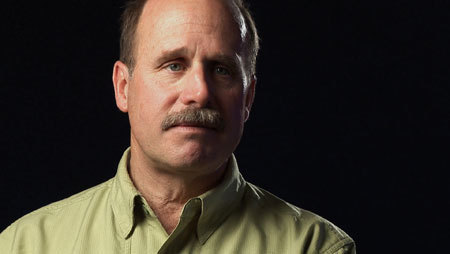
Paul Saffo presents “The Creator Economy”
TICKETS
Tuesday March 31, 02015 at 7:30pm
Cowell Theater at Fort Mason
Long Now Members can reserve 1 seat, and purchase additional tickets at half-price.
Join today! General Tickets $15
About this Seminar:
According to futurist (and Long Now board member) Paul Saffo, the ‘new economy” anticipated in the late 01990s is arriving late and in utterly unexpected ways. Social media, maker culture, the proliferation of sensors, and even the 02008 market crash are merely local phenomena in a much larger shift. What unfolds in the next few years will determine the shape of the global economy for the next half-century and will force a profound rethink of economic theory.
Paul Saffo teaches forecasting at Stanford and Singularity University. Journalists rely on him for cruelly telling quotes about everything from the monthly disruptions in Silicon Valley to the yearly turmoils in the global economy.
Stewart Brand's Blog
- Stewart Brand's profile
- 291 followers





